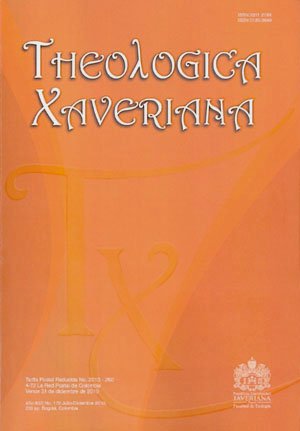Abstract
Any given attitude towards the implications of a pluralist religious education must examine the goal of education in general and of a religious one in particular in a pluralist world – as the Colombian one is becoming into, if the Colombian and other countries legal regulations demands are to be respected regarding to educate from, in, and for religious freedom. A meticulous consideration of the sensitive dimensions towards the religious experience and, therefore, the symbolic language in our country and Latin America in general –dimensions that still go back and forth from modernity to post modernity– will support or question the discourse that presents it.
This journal is registered under a Creative Commons Attribution 4.0 International Public License. Thus, this work may be reproduced, distributed, and publicly shared in digital format, as long as the names of the authors and Pontificia Universidad Javeriana are acknowledged. Others are allowed to quote, adapt, transform, auto-archive, republish, and create based on this material, for any purpose (even commercial ones), provided the authorship is duly acknowledged, a link to the original work is provided, and it is specified if changes have been made. Pontificia Universidad Javeriana does not hold the rights of published works and the authors are solely responsible for the contents of their works; they keep the moral, intellectual, privacy, and publicity rights.
Approving the intervention of the work (review, copy-editing, translation, layout) and the following outreach, are granted through an use license and not through an assignment of rights. This means the journal and Pontificia Universidad Javeriana cannot be held responsible for any ethical malpractice by the authors. As a consequence of the protection granted by the use license, the journal is not required to publish recantations or modify information already published, unless the errata stems from the editorial management process. Publishing contents in this journal does not generate royalties for contributors.


